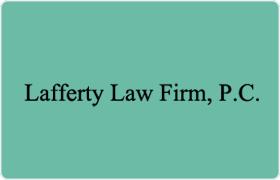Hermitage Bankruptcy Lawyer, Tennessee
Sponsored Law Firm
-
 x
x

Click For More Info:
-
Lafferty Law Firm, P.C.
1321 Murfreesboro Pike Suite 521 Nashville, TN 37217» view mapBankruptcy & Debt Over 30 Years Of Experience
Susan S. Lafferty is a CPA and Attorney who enjoys helping people with financial problems. She is located in Nashville, TN where she has lived for over 30 years.
800-936-9071
Includes: Bankruptcy Litigation, Commercial Bankruptcy, Consumer Bankruptcy, Dissolution
David Earl Phillips
Divorce & Family Law, Reorganization, Bankruptcy, Bankruptcy & Debt
Status: In Good Standing Licensed: 39 Years
Ray Chua Yan
Immigration, Family Law, Business, Bankruptcy
Status: In Good Standing Licensed: 10 Years
 Susan Lafferty Nashville, TN
Susan Lafferty Nashville, TN Practice AreasExpertise
Practice AreasExpertise
